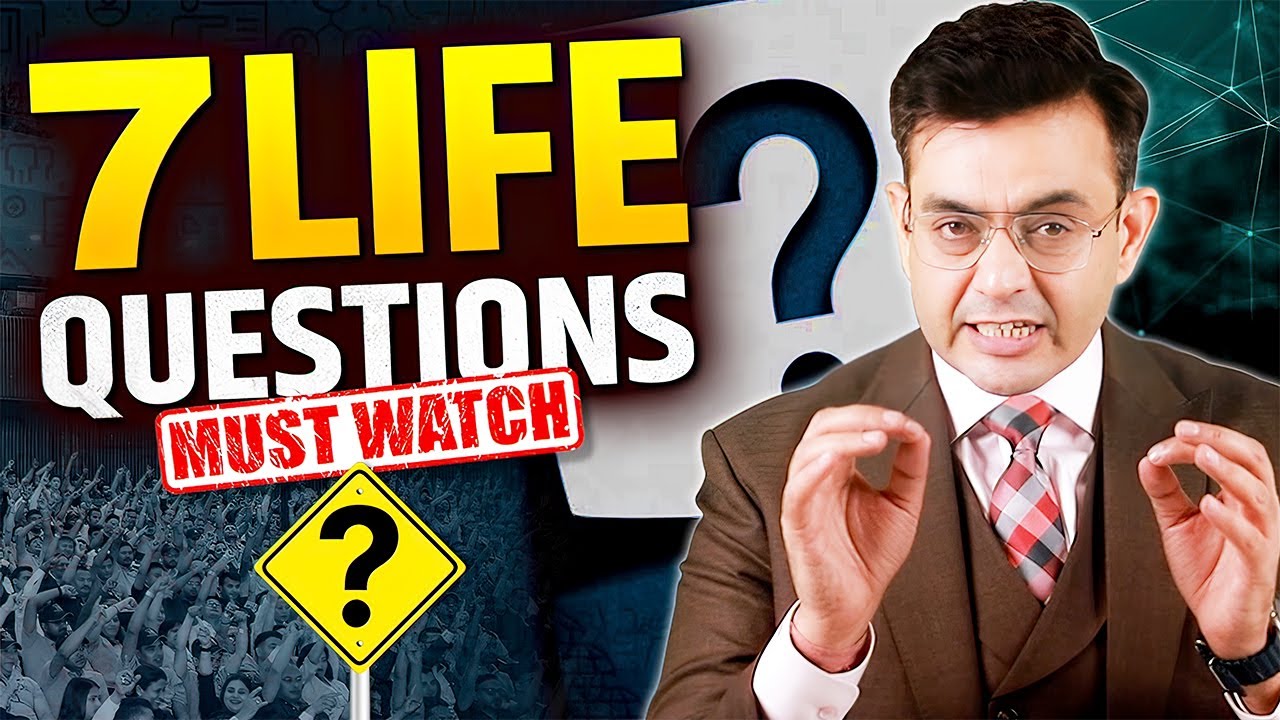A video for anyone feeling behind in life
Summary
TLDRThis video script challenges the notion of feeling 'too late' in life to achieve goals. It offers two key reasons to believe that it's never too late: the value of diverse experiences enhancing creativity and adaptability, and the importance of consistency and patience in success. The speaker shares examples of individuals who found success later in life, emphasizing the benefits of maintaining a beginner's mindset and taking care of one's health to extend productive years. The script concludes with a promotion for Loom, a tool for efficient process documentation and team communication.
Takeaways
- 🕊️ The concept of being 'late' in life is relative, and opportunities can still arise with consistency and patience.
- 🚀 Early starters don't always succeed; success often comes to those who explore various interests before focusing on a specific field.
- 🎨 Diverse experiences can enhance creativity and adaptability, as highlighted by David Epstein in his book 'Range'.
- 🎾 Examples like Roger Federer show that starting later in life and having a broad range of experiences can lead to peak performance.
- 🤹♂️ The idea of 'kind' and 'wicked' learning environments suggests that diverse experiences are beneficial in more complex fields.
- 🎸 Learning new skills or taking time off to learn something different can improve one's approach to their primary interest, as the speaker experienced with guitar and piano.
- 🧘♀️ The importance of maintaining a 'beginner's mind' to stay open to new experiences and learning throughout life.
- 💪 The necessity of self-care to ensure a healthy and energetic life, which can extend the window of opportunity.
- 👵 The impact of habits on aging gracefully, emphasizing the importance of sleep, diet, and exercise.
- 🔗 The benefits of delegation and documenting processes for efficient teamwork, as sponsored by Loom in the video.
- 📈 The visualization by Jack Butcher that suggests many may be at the 'This is pointless' stage and need to push through for success.
Q & A
What is the main message of the Instagram post shared in the video?
-The main message is that it's almost certain one is not too late to achieve their goals and that the feeling of being behind in life is often unfounded.
What is the first reason given in the video to refute the belief that one might be too late to achieve their goals?
-The first reason is that the early birds don't always win, suggesting that starting late doesn't necessarily mean one cannot succeed.
Can you explain the concept of 'kind' and 'wicked' learning environments as mentioned in the video?
-In 'kind' learning environments, feedback is immediate and usually perfect, like in chess or golf. 'Wicked' environments, however, provide confusing, incomplete feedback and information, making them more complex.
Why does the video mention Roger Federer as an example?
-Roger Federer is mentioned as an example of someone who didn't start as early as his peers but still became one of the greatest tennis players, highlighting the value of diverse early experiences.
What is the significance of the 'Range' book by David Epstein in the context of this video?
-The 'Range' book supports the argument that top performers in many fields are often those who started later in life, having explored various interests before specializing.
How does the video relate the concept of 'beginner's mind' to lifelong learning and adaptability?
-The video suggests that maintaining a 'beginner's mind', an openness to new experiences and learning, can help individuals remain adaptable and continue to grow throughout their lives.
What is the importance of taking care of oneself according to the video?
-Taking care of oneself is crucial as it can add happy, healthy years to one's life, making the concept of being 'late' irrelevant.
What are the two mega important habits mentioned in the video that can help ensure 'late' doesn't turn into 'never'?
-The two habits are taking care of one's health and maintaining a 'beginner's mind', both of which contribute to lifelong learning and adaptability.
How does the video use the story of Jimmy to illustrate the point about being 'late' in life?
-The story of Jimmy, who went from being broke at 32 to owning a successful art business at 42, is used to show that success can come at different times and that consistency and patience are key.
What is the role of Loom in the video, and how does it relate to the topic of the video?
-Loom is a tool used for screen recording and documentation, which is highlighted in the video as a way to delegate tasks efficiently, allowing for more focus on personal growth and learning.
Outlines

Esta sección está disponible solo para usuarios con suscripción. Por favor, mejora tu plan para acceder a esta parte.
Mejorar ahoraMindmap

Esta sección está disponible solo para usuarios con suscripción. Por favor, mejora tu plan para acceder a esta parte.
Mejorar ahoraKeywords

Esta sección está disponible solo para usuarios con suscripción. Por favor, mejora tu plan para acceder a esta parte.
Mejorar ahoraHighlights

Esta sección está disponible solo para usuarios con suscripción. Por favor, mejora tu plan para acceder a esta parte.
Mejorar ahoraTranscripts

Esta sección está disponible solo para usuarios con suscripción. Por favor, mejora tu plan para acceder a esta parte.
Mejorar ahoraVer Más Videos Relacionados

7 Harsh Truths About Women That Men Learn Too Late

9ª Encuentro con la tierra: concientización sobre el agua. La UNAM responde 986

I Tried The WORLDS Most Productive Routine For 30 Days

Hard hitting answers ! Life Lessons ! Motivational Video in Hindi | Sonu Sharma

My honest advice to someone who’s doing too much

THE NECKLACE | GUY DE MAUPASSANT
5.0 / 5 (0 votes)
